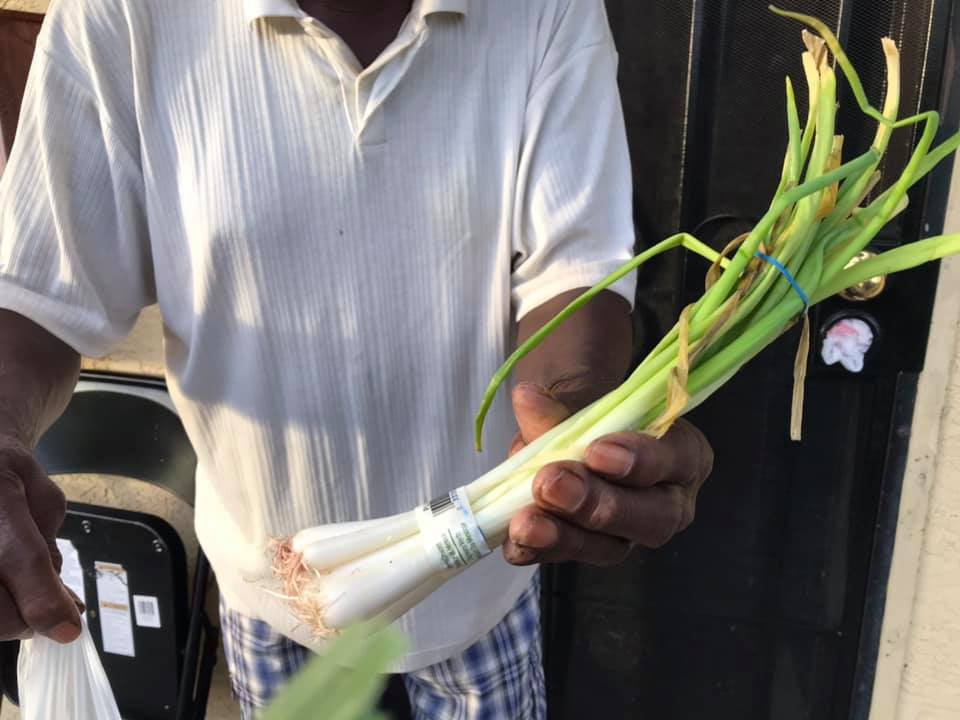 For many whose life began in another country, there are comforts and traditions that keep them connected to their motherland. Jean, a local resident, describes how he’s still finding hints of home even in the midst of a pandemic through his daily routine. “In Haiti, this is what I was used to. There weren’t any formal markets where I grew up. Traditionally, street vendors called 𝑀𝑎𝑐ℎ𝑎𝑛𝑛 passed by daily and we got what we needed for the day. Even though I’ve been gone from Haiti for so long, we are used to 𝑀𝑎𝑐ℎ𝑎𝑛𝑛 passing by the apartments. Nowadays the only person who walks by is the 𝑀𝑎𝑑𝑎𝑛 𝑆𝑎𝑟𝑎, a woman street seller that sells fresh food and vegetables. Everyone else stopped because of the virus. Sure I can go to the store, but I support her because she’s been selling around here for decades and I trust her products. Everyone around here knows her and she’ll let us buy with credit if we don’t have the money. If she doesn't have what I need, I’ll go to the local farmers market. The 𝑀𝑎𝑑𝑎𝑛 𝑆𝑎𝑟𝑎 coming around reminds me of home. Today I bought 𝘱𝘸𝘢𝘳𝘰 (green onions), 𝑙𝑎𝑦 (garlic), and 𝘴𝘪𝘵𝘸𝘰𝘯 𝘺𝘰 (lemons). I’ll use the 𝘱𝘸𝘢𝘳𝘰 for spices and to wash meat. I like to use 𝑙𝑎𝑦 for cooking rice, bean sauce, and seasoning meat. The 𝘴𝘪𝘵𝘸𝘰𝘯 𝘺𝘰 are perfect for washing the meat because it remove the bad smell. I also use 𝘴𝘪𝘵𝘸𝘰𝘯 𝘺𝘰 to protect myself from the coronavirus. Around the apartments we have 𝘴𝘪𝘵𝘸𝘰𝘯𝘦𝘭 (lemongrass) growing. I boil the 𝘴𝘪𝘵𝘸𝘰𝘯𝘦𝘭 and 𝘴𝘪𝘵𝘸𝘰𝘯 𝘺𝘰 and drink my tea. This is what I’ve always done. I have to stay strong.” Translated from Creole by Frantzo
0 Comments
|
AuthorMaria Plata is a Mexican-American writer, educator, and lover of connecting people through storytelling. Archives
March 2021
Categories |
 RSS Feed
RSS Feed
